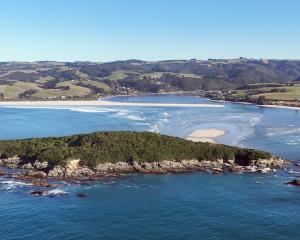Television New Zealand says it will fight a Broadcasting Standards Authority decision that TVNZ's Sunday programme about the Aramoana massacre breached broadcasting standards through use of the f-word.
The item, covering the 20th anniversary of the massacre at Aramoana in Dunedin, screened in November at 7.30pm.
Thirteen people were killed by David Gray, a 33-year-old unemployed man who began indiscriminately shooting people in the small seaside township.
An interview with the policeman who shot Gray was screened after two warnings from the presenter that content might offend some people.
Having described an exchange of gunfire with Gray, the policeman explained the dialogue between himself and the offender and used the f-word twice.
Complainant P Freeman complained to TVNZ, alleging the policeman's "obscene language" breached standards relating to good taste and decency, law and order, responsible programming and children's interests and gave a negative impression of New Zealand policing.
TVNZ did not accept that it had breached any standards, saying the Sunday programme targeted an adult audience and there was "significant public interest in hearing the words spoken to and by the country's worst mass killer at the time of his death".
The BSA found, in a majority decision, that the programme breached the standards of good taste and decency as well as children's interests, as it was shown at a time when children might still be watching.
"Even if the subject matter of the programme is not of interest to children or the subject matter too complicated, an expletive such as "f..king" will be obvious and noticed by children who are in the room," the BSA said in its decision.
The authority did not uphold the standard of responsible programming as Sunday is an unclassified current affairs programme.
No orders were made, but TVNZ has said it would appeal to the High Court against the decision which it described as "incomprehensible".
To let the ruling stand would be to damage the right to freedom of expression in reporting on matters of such high public interest and historical significance to this country, TVNZ said.












